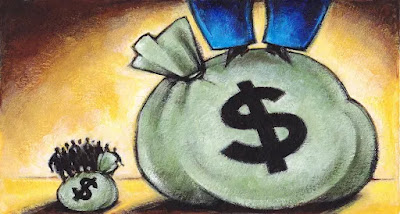Canadians are worried about the economy. Glen Pearson writes that Canadians have reason to be:
We’re right to fret, especially after the International Monetary Fund (IMF) released its grim financial forecast a week ago. Its conclusion was that the next five years will be the weakest for the global economy in more than three decades. “Ominous forces” and “uneven growth” could hinder living standards for the rest of the decade and beyond. The forecast weighs on the mind of every government in the G20. Added to this was the sobering reality of the Intergovernmental Panel on Climate Change release which stated that natural catastrophic events will increase, impacting every aspect of economic life.
Some of the turbulence feels beyond our reach: the war in Ukraine, the deterioration of US-China relations that could lead to two immense global economic blocs, environmental challenges, and political restlessness in many global locations. These are beyond Canada’s ability to manage and will inevitably impact any measures Canada takes to rekindle its economy.
This economic turbulence is fueling political turbulence:
As politics in the West becomes increasingly dysfunctional, citizens continue to check out of democracy at alarming levels. But it will get worse, as their family incomes struggle and the standard of living takes critical hits. Inevitably, people’s economic uncertainty will translate into political anger.
Economists, researchers, and seasoned voices can offer strategic guidance, but if governments refuse to listen, or opposition parties care more about gaining power than economic stability through principled cooperation, ineffective politics will lead to national disruption.
Some things within our domestic reach could be tackled to ameliorate some of our concerns. Both corporate and private debt levels are too much in the extreme. As interest rates hover at current levels, or even threaten to creep up, servicing debt can become a significant problem. Forcing individuals and corporations to tighten their belts makes sense in times of economic uncertainty, but foreclosure on those debts might become a pending reality, causing stress in the electorate.
Economic betterment is also a significant problem, as Canadians are now fully convinced they will never do as well as their parents did. That might or might not be true, but they believe it is, and it is perception that drives politics.
And that is the heart of the problem: our economic perceptions drive our political perceptions.
Image: Harvard Gazette

8 comments:
You know what drives our economic perceptions? Mostly the media. Stories of economic doom and gloom fill the news like 5-alarm blazes in Cheektowaga used to fill Irv Einstein's nightly Eyewitness News broadcasts out of Buffalo, NY. Why? Because corporate interests like it when people are afraid for their jobs and not demanding wages that rise with inflation and corporate profits.
But, the business press tells a different story. Despite public perceptions, the US economy is doing remarkably well. Here's the Economist on April 13th:
If there is one thing that Americans of all political stripes can agree on, it is that the economy is broken. Donald Trump, who saw trade as a rip-off and his country in decline, came into office promising to make America great again. President Joe Biden is spending $2trn remaking the economy, hoping to build it back better. Americans are worried. Nearly four-fifths tell pollsters that their children will be worse off than they are, the most since the survey began in 1990, when only about two-fifths were as gloomy. The last time so many thought the economy was in such terrible shape, it was in the throes of the global financial crisis.
Yet the anxiety obscures a stunning success story—one of enduring but underappreciated outperformance. America remains the world’s richest, most productive and most innovative big economy. By an impressive number of measures, it is leaving its peers ever further in the dust.
Now, if there's one thing I've noticed over the years it's that the Canadian economy tends to track the larger US one. Maybe we should be a little more skeptical of economic stories, and guys like PP aping US Republicans by lying about the state of the economy.
Lying has become very profitable, Cap. That's because there are so many fools who continue to buy the lies.
It's the economy stupid!
Well, call me stupid.
It's almost always been governments policy to balance budgets.
Now governments are running deficits that will not be paid down in the foreseeable future.
It's a free market we have a market economy!
Now government subsidises business and individuals alike to keep the 'free market' running.
Or is it all just a giant con or myth?
TB
The problem, TB, is that -- when it comes to the economy -- some people are stupid.
With due respect; in that case enlighten me for , as my post, it does not make sense.
The decisions of both politicians and their 'professional' advisers goes contrary to world events!
The prophesies of both economists and politicians has not come to pass.
Trading labels to suit the narrative is not economics.
TB
True, TB. But economics -- of whatever label -- is a great tool for stirring up political discontent.
A bit late in the conversation..
https://www.economist.com/finance-and-economics/2023/04/17/how-to-explain-the-puzzle-of-the-world-economy?utm_campaign=a.the-economist-this-week&utm_medium=email.internal-newsletter.np&utm_source=salesforce-marketing-cloud&utm_term=20230420&utm_content=ed-picks-image-link-3&etear=nl_weekly_3&utm_campaign=a.the-economist-this-week&utm_medium=email.internal-newsletter.np&utm_source=salesforce-marketing-cloud&utm_term=4/20/2023&utm_id=1569409
TB
Interesting, TB. I've never thought of the Mona Lisa as an analog to the economy.
Post a Comment